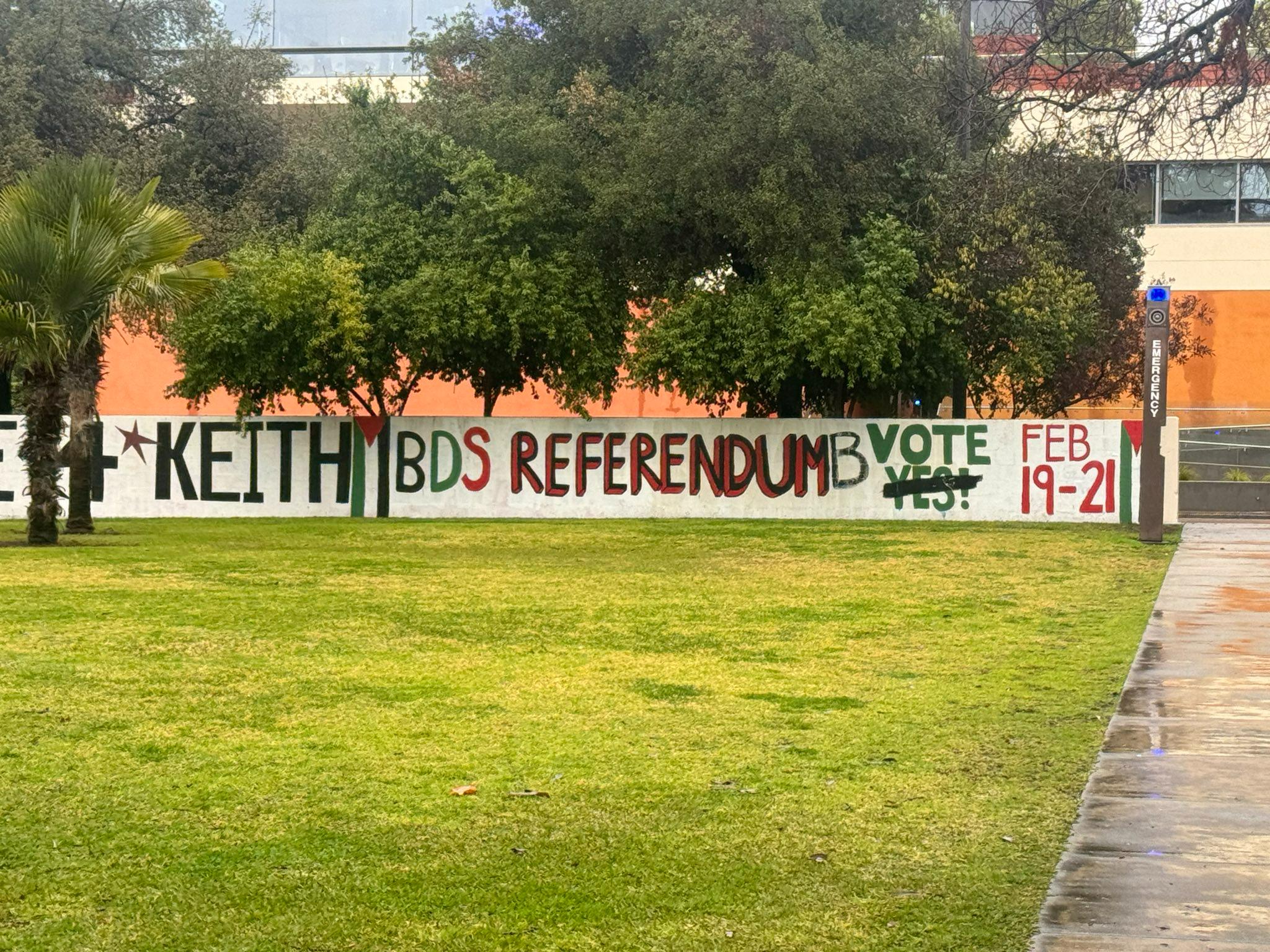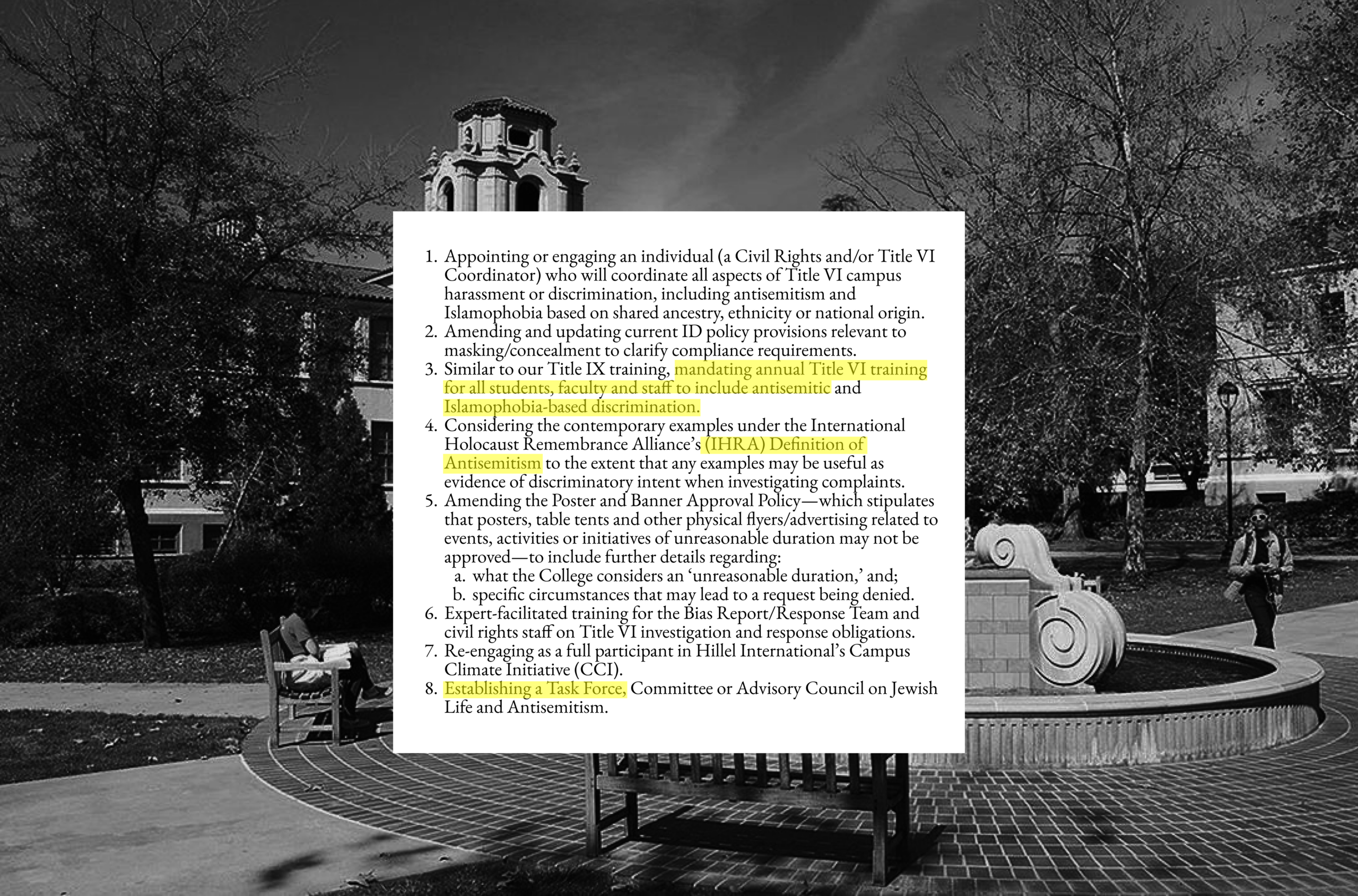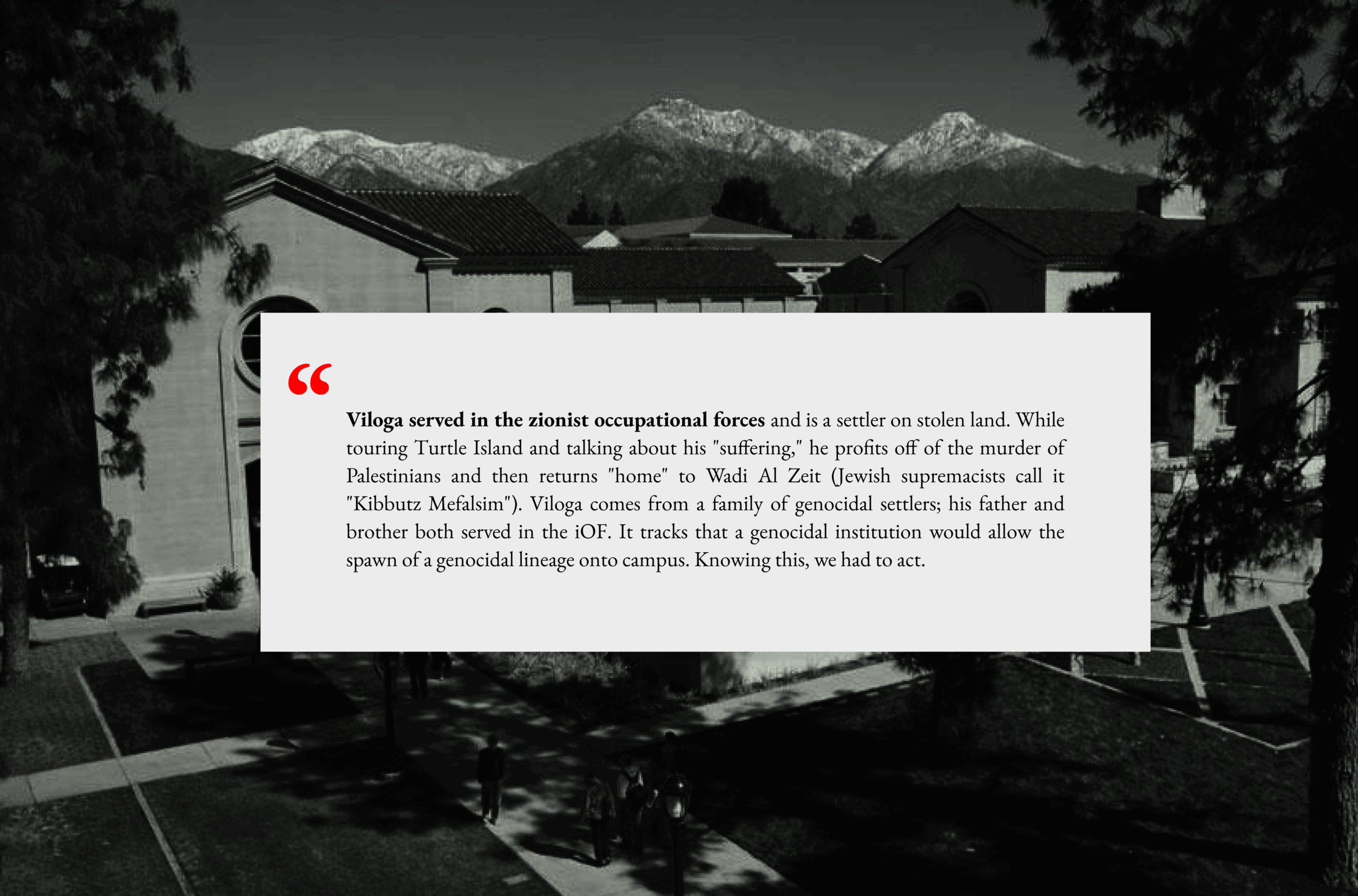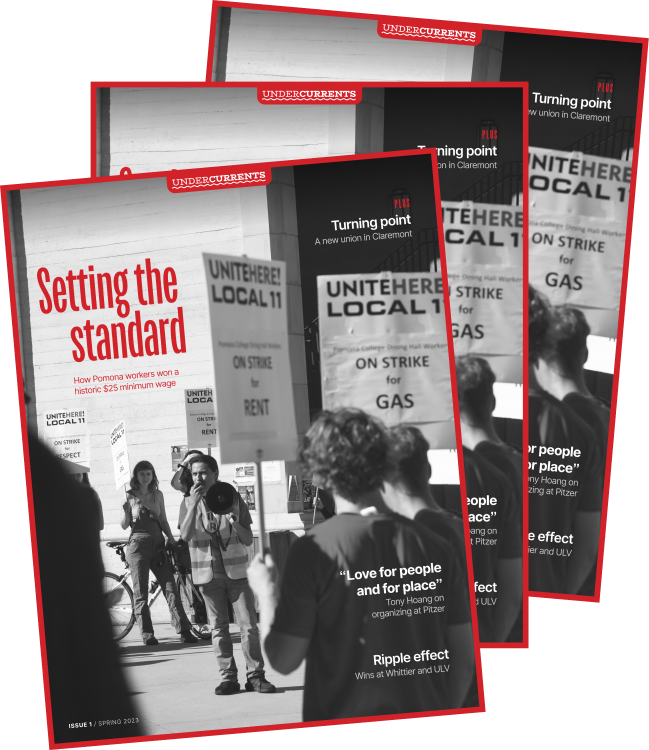
February 27, 2024
The referendum had the highest margin of victory for a student body-wide BDS vote at any U.S. college, according to National SJP.

From Feb. 19 to 21, an overwhelming majority of over 1,000 participating Pomona College students voted in strong support for divestment from Israel, in a referendum conducted by the Associated Students of Pomona College.
The students voted on five questions about disclosure and divestment. 90.79 percent of students voted in favor of disclosing Pomona’s investments in weapons manufacturers. 85.16 percent voted in favor of Pomona’s complete divestment from said weapons manufacturers. 78.29 percent voted in favor of an academic boycott of Israeli institutions following USACBI guidelines. 86.17 percent voted in favor of disclosing Pomona’s investments “in all companies aiding the ongoing apartheid system within the State of Israel.” Lastly, 81.67 percent voted in favor of divesting from complicit companies.
On Feb. 22, Pomona Divest from Apartheid and National Students for Justice in Palestine co-posted a statement, claiming that this campaign “has the highest percentage of ‘yes’ votes of any student body-wide [BDS] referendum conducted at a major college in the U.S.”
Since Oct. 7, Israel’s operations in Gaza have killed over 33,301 Palestinians, according to Al Jazeera. The referendum was part of a months-long student campaign for Pomona to divest from the Zionist occupation of Palestine.
Pomona President condemns the referendum
On Friday, Feb. 16 at 4:59 p.m., Pomona President G. Gabrielle Starr sent out an email to the Pomona student body with the subject heading “Pomona opens doors, we don’t close them.”
The email stated that the referendum would tear apart the “Sagehen community” on campus due to the questions’ divisive nature, and claimed that ASPC was unfairly targeting Israel by holding the referendum.
“For many years now, the only nation on which ASPC has focused its activity is the world’s only Jewish state,” Starr wrote. “This singling out of Israel raises grave concerns about the referendum’s impact on members of our community.”
She also argued for political neutrality, stating, “At no point have we taken sides,” in order to promote an agenda of inclusivity.
However, Starr has taken political stances in the past, both at the beginning of Russia’s invasion of Ukraine as well as the overturning of Roe v. Wade.
Starr’s email also promised to maintain academic inclusivity, vowing to continue accepting students from Israel. The referendum does not mention the exclusion of students on the basis of national origin.
“Pomona opens doors, we don’t close them: Students and scholars from all countries, including Israel, will always be welcome here,” the email said. “To exclude anyone from the pursuit of knowledge on the basis of the country in which they live is contrary to our mission.”
Jewish Voice for Peace, Faculty for Justice in Palestine push back in support
In response to Starr’s argument of this referendum “singling out” of Israel, Jewish Voice for Peace at the Claremont Colleges sent out a statement later that day on Feb. 16.
In this email, they criticized Starr for her “continued conflation of Jewish students with the State of Israel,” as it “made clear that [Starr has] prioritized defending the State of Israel from criticism and accountability over keeping [her] students safe.”
The following day, Claremont Faculty for Justice in Palestine—a coalition of over 50 Claremont faculty members—released a statement on Feb. 17 which criticized Starr for failing to recognize the ongoing scholasticide in occupied Palestine.
“Though President Starr’s email invites the College to engage in academic discussion as a substitute for political action, we cannot ‘engage’ with our Palestinian colleagues in Gaza if literally nothing remains of Gaza’s basic infrastructure and educational landscape.”
The next day, on Feb. 18, Los Angeles Jewish Voice for Peace issued a response to Starr’s anti-referendum email. They criticized Starr for accusing ASPC and by extension the entire Pomona student body of “the fraudulent charge of antisemitism deployed to smear and undermine support for the Palestinian struggle for freedom.”
In the email Starr sent out, she urged the “Sagehen community” to treat one another with deep care and to “refuse personal attacks.” In response, JVP Los Angeles argued that the rhetoric of care is bleak.
“Put simply, you [Starr] present yourself as caring about Jewish students and their safety, but you render invisible and thus harm your many anti-Zionist Jewish students, as well as your Palestine and Arab students.”
Back in April 2021, ASPC unanimously voted to divest from “categorical spending on items that knowingly support the Israeli occupation of Palestine or contribute to any companies on the aforementioned United Nations list.” Starr and administrators criticized ASPC for its lack of student body representation in an email sent out the following day. Zionist organization Canary Mission subsequently put up the faces and names of every single ASPC senator at the time.
On Monday, Feb. 19 at 12:09 p.m., ASPC sent out the referendum to the entire Pomona student body via email. An attached document defined various terms that appeared on the ballot, such as “investments in weapons manufacturers,” “apartheid” and “cease all academic support,” citing from the United Nations, the United States Campaign for the Academic and Cultural Boycott of Israel and other resources.
The ballot consisted of five “yes” or “no” questions regarding divestment, disclosure of investments and academic boycott. However, the ballot was released on a ranked choice voting portal, which initially confused some voters and led to unintended “no” votes. ASPC facilitated a revote, released at 2:03 p.m. the same day, and also extended the voting period to 7 p.m. on Wednesday, Feb. 21 to “ensure the same number of voting hours.”
Senate voted several rounds before approving referendum
In an ASPC meeting on Jan. 25, two students proposed the referendum on behalf of over 25 student organizations. The proposal document outlined the five referendum questions alongside relevant definitions, such as apartheid.
The presenting students noted that, at the time, no student council decision had been made on divestment yet. They also reminded the council of Pomona’s response to South African apartheid through a referendum measure in the past, encouraging for this referendum to pass, which would give Pomona’s student body the chance to use their voices.
After some discussion, senators agreed to vote the same day with the condition that the language be flexible. In a private vote, the referendum proposal passed with 10 ayes, 2 naes, and 1 abstention.
At a Feb. 8 ASPC meeting, there was an open forum where guests were allowed to speak for a limited amount of time in regards to the referendum.
Three students expressed sentiments against the referendum. They argued that there was no public inquiry, which made the referendum’s language partisan, making Jewish students feel unsafe. They also argued that the definitions used came from Hamas and suggested that ASPC should write the referendum themselves.
Five students, including one who identified themselves as Black and Jewish, expressed support for the referendum. They claimed that many students came together to draft the referendum, arguing that the referendum was not inappropriate or abstract because it affected real families and communities at Pomona.
A Palestinian student expressed that they felt that admin was only providing support for their Jewish students at the time despite the increased targeting of Palestinians across the U.S. Another student stated that the student body had the responsibility to vote.
After the open forum, a senator motioned and another seconded to revote the initial referendum voting two weeks prior on the basis that there was no public input taken until this meeting.The senators subsequently voted in favor of the referendum once again, with 8 ayes, 1 nae, and 3 abstaining.
Before the meeting was adjourned, the senators voted on the changes made to the referendum’s language introduced last week: 9 voted yes and 3 abstained. The motion passed.
After the referendum passed, students painted “Referendum” and “Vote Yes” on Walker Wall. Others defaced the promotion, adding the letter B and crossing out “Yes,” leaving the wall to read “ReferendumB” and “Vote.”
Across the 5Cs, students wore “Vote Yes” pins on their bags and clothing. At Scripps College’s Motley Coffeehouse, which administrators have targeted with new poster censorship and space usage restriction policies in response to pro-Palestinian actions, pins on the register expressed support for the referendum.


Commentary

Palestine

Palestine

Undercurrents reports on labor, Palestine liberation, prison abolition and other community organizing at and around the Claremont Colleges.

Issue 1 / Spring 2023
Setting the Standard
How Pomona workers won a historic $25 minimum wage; a new union in Claremont; Tony Hoang on organizing
Read issue 1